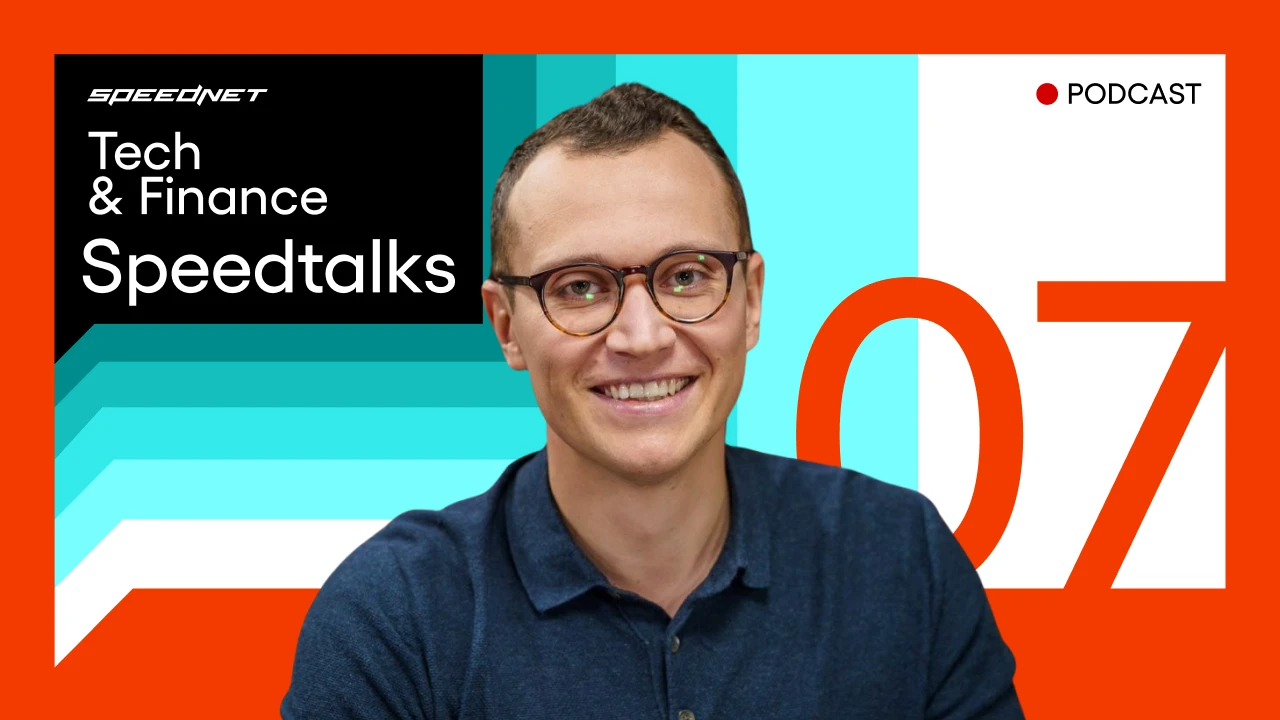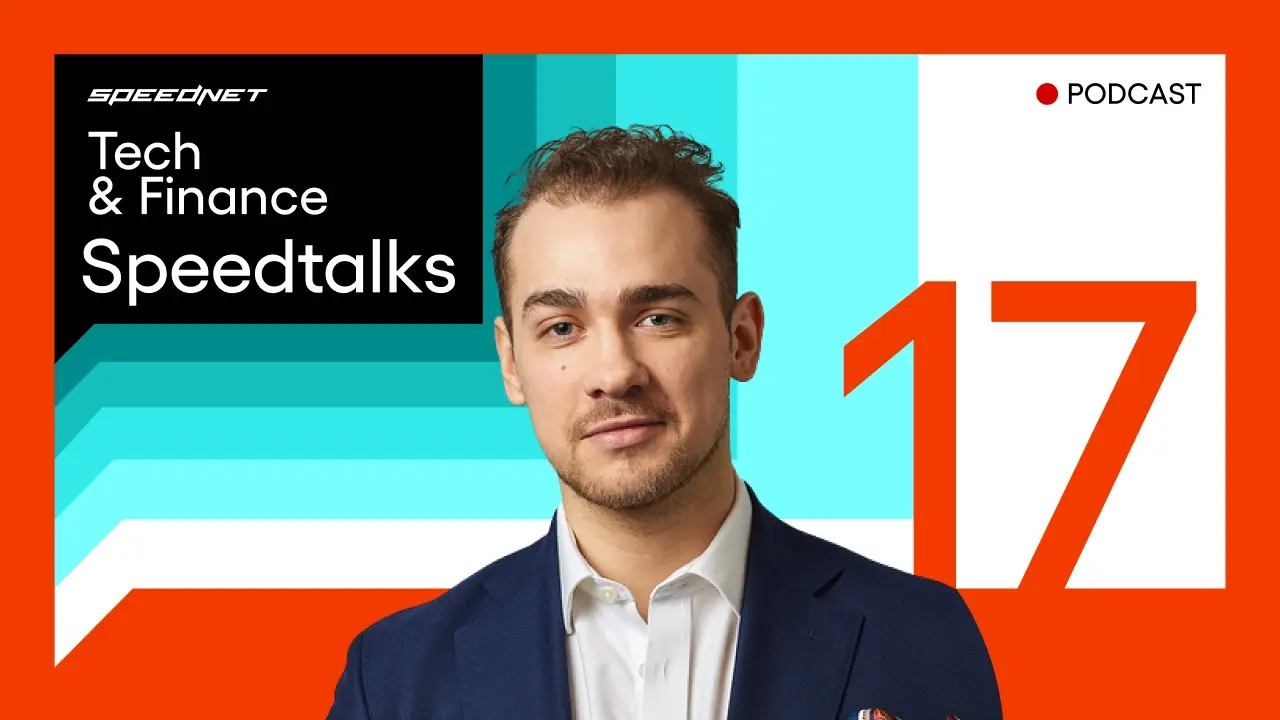007: 17 Questions to Ask Your Potential IT Partner


Transcription:
Hello and welcome to Speedtalks, the podcast about everything tech in the financial services industry. The topic of today’s episode is Navigating Vendor Selection in Financial Services: 17 Questions to Ask Your Potential IT Partner. I will mention seventeen key questions to ask a software agency or an IT vendor or an IT partner before engaging in a meaningful partnership because there is naturally a level of due diligence that needs to be followed in terms of choosing a potential partner, specifically in the financial services industry.
This episode is designed for decision makers in mind. I want to give them value in the process of finding a partner, and I want to showcase some of the most important aspects they should ask about. I will explain what the questions are, what to look for in the answers, and what the goal of asking each question is. So off we go then.
What is your experience in developing mobile banking or fintech apps?
Let’s start with question #1. What is your experience in developing apps or portals in the financial services industry? Here, you should look for experience in, let’s say, banking, fintech, insurance, and your sector, as well as an understanding of domain-related requirements. Examples of similar apps they have developed. The goal here is to understand if they have solved similar problems before. You don’t want them to reinvent the wheel. You don’t want them to piggyback on your budget and learn at your expense. You want to tap into an aggregated pool of knowledge and insights built throughout the years of solving similar challenges to the ones you are facing at the moment. So that’s the question number one. What is your experience in dealing with the things I want you to deal with?
Can you provide case studies or references from previous clients in the financial industry?
Question #2 then – level deeper. Can you provide case studies, references or success stories from previous clients in my industry? You should look for detailed case studies, successful product outcomes measured in numbers with testimonials signed in the name of a customer, and references who speak positively about previous collaboration and problem-solving skills. You name it. Ideally, if you can get in touch with a previous customer over a phone call, don’t hesitate to ask for two or three phone calls to their previous customers.
The goal here is to understand whether they are credible enough and whether they have a track record of success. You know, nowadays you can put everything on the Internet. Everyone can say they did a project with Revolut or I don’t know, Monzo, whatever and put their logo on their website. But do they walk the talk in the eyes of the customers? Do customers actually confirm that they did deliver what they boast they delivered? It’s all about credibility and legitimacy here.
What is your understanding of the financial domain?
Question #3 – what is your understanding of the financial domain or my domain? You should look for a partner who is not just a tech expert but also understands your field, speaks your language, and knows the slang, and if they come across a domain-specific phrase or an aspect, they won’t be Googling it or searching Wikipedia. I have seen that happen. Do their developers follow a domain-driven development approach, for example? Do they have solution architects who are experts in your field? Do they provide business analysts and project managers with experience in your area? That all has to be in place because the goal here is that you don’t want any IT partner. There’s no point in going for a generalist, in my opinion.
You want a fintech slash banking slash insurance, niche-specific partner, not a generalist. This way, you can tap into the aggregated experience of understanding your domain. It’s all about understanding the what and how quickly and easily they can grasp the “what” that you’re bringing to the table here.
What sets your agency apart from others?
Question #4 – what sets your agency apart from other companies like yours? Here, you should look for unique selling points. What makes the agency stand out, and whether it actually resonates with you? Whether this argumentation clicks. The goal here is that IT services can be a commodity on a red ocean, but you want to find a partner who will have a unique value proposition that will be relevant to your case. Not any case – your case. Perhaps it is the location; perhaps it is case studies, success stories, technical excellence, understanding of your domain, and price. What makes them different? Why should you choose them? I mean, this is the question you should ask, and if they cannot clearly explain what value they are bringing to the table – for me, it’s a strong signal.
How do you attract and retain IT talent?
Question #5 – How do you attract and retain top IT talent? Here, you should look for someone who has the ease of tapping into a vast talent pool. Someone who has a people department flexible enough to provide you with scale. Like, tap on, tap off. What is the attrition rate? How quickly are they able to ramp your team up? How will they make sure that your team that on your project there will be top talent and 2nd to best?
The goal here is that I very much believe a happy employee equals a happy customer. It’s as simple as that. So, if you ask about the voluntary attrition rate and you hear that it’s 30%, it means that perhaps they are not doing something right. It also means that in three years, there will be no one on your team who started the project three years ago with you. So imagine just the cost of losing that knowledge. You want someone who will be able to attract and retain sufficient and relevant level of IT talent.
What is your development process and methodology?
Question #6 – what is your development process and methodology? Here, you should look for someone who can come up with a well-defined process and procedures, preferably agile, which allows for flexibility and regular feedback during the development but also a process that will match your needs, your size, your requirements, the complexity of it, and your preferred methodology. Here, the goal is to see if you are a good fit for how you work. There will be no fit, for example, if your preferred model for billing is fixed price and what partners say is they do time and material only. You need to know that once they understand the “what” because of the technical expertise and domain understanding, then they will know how to do it and this “how” is a good fit with your “how”. So you have to have this alignment on how you get there.
What technologies and platforms do you specialise in for mobile/web app development? What is your seniority level/technical expertise?
And question #7, even prior to that, what technologies and platforms do they specialise in in terms of software development? What is the seniority level and the technical expertise level they have in place? Here, you should look for proficiency in relevant technologies, not any technologies, the stuff that you are working with, for example, and the experience in those technologies. You should look for people who are senior not only in years of experience but also in terms of the approach of ownership, accountability, problem-solving, and challenging the status quo.
Here, the goal is that you should basically speak the same language. You want someone who will bring to the table the value in terms of technical expertise and technical excellence, someone who your in-house developers will say, “Hey, they are more senior than us; we learn while working with them, and we work in the same technologies, we are a good fit technically speaking for this project”.
How do you manage project timelines and what is your process for mitigating risk?
Question #8. We are almost halfway through. How do you manage project timelines, and what is your process for mitigating risk? Here, you should look for someone who will be transparent on timelines and provide realistic estimates and a clear plan for managing potential delays. What about communication? Do they measure any KPIs provided in dashboards you will have access to? How will you know that they are on track? How will they involve you? What kind of tools would they use?
I mean, the goal here is to avoid situations when someone will tell you, hey, I can do it in a year, when you know it’s clearly work for at least a two or three-year timeline. You need to make sure that the delivery of your project will be of high quality and it will be predictable. That’s the keyword here – you want predictability of delivery. How will they stay on top of the risks and obstacles that will surely happen during the work?
Can you describe a challenging project you’ve worked on and how you overcame obstacles?
That’s question #9 – can you describe a challenging situation you have worked on and how did you overcome these obstacles? You need to look for problem-solving skills, resilience, the ability to navigate complex challenges in development, the ability to foresee challenges before they occur, and how to solve them when they come across them.
How do you manage communication and project transparency during development?
And that’s also related to question #10 – how do you manage communication and project transparency during development? Here, you want someone who provides you with regular updates and will use relevant project management tools like Jira, for example. Then, you need someone who provides you with a dedicated project manager or account manager who will work with you around clearly defined milestones. A process that will incorporate your feedback will involve your stakeholders. And at the same time, will be flexible enough to make adjustments.
The goal here is to face the truth; issues will occur 100%. Any project I have ever seen there, there will always be a level of issues. What you want is a partner who will say, raise a hand and will say, “hey, Houston, we’ve got a problem.” Instead of swiping it under the carpet so that you won’t find only after past the deadlines that there’s a challenge, there’s a problem to overcome. So you want honesty, transparency and open communication.
How do you ensure the app’s performance, reliability and scalability?
Moving on to questions that are potentially more on the technical side. So, question #11 – how do you ensure the app’s performance, reliability and scalability? So you should look for strategies for performance optimisation and load testing and architecture design that will be relevant. Here, you want to find a partner who handle the growth of your product past go live.
What is your testing and quality assurance process?
Question #12 – how do you approach testing and quality assurance processes? Here, you should look for someone who will have comprehensive quality assurance and testing processes in place, including all of the tests that are relevant to your projects. Be it manual or automated, user acceptance, or performance load. Whatever kind of quality assurance you need, you need to verify if that is in place. You need to make sure that the project will be of relevant quality and that there is a process in place to ensure that.
What is your approach to ensuring security and compliance with financial regulations, handling sensitive data and user privacy?
Question #13 – what is their approach to ensuring security and compliance with any regulations that you are dealing with, handling sensitive data, user privacy, et cetera? Here, you should look for familiarity with regulations that might be most relevant to your case. Best practices for dealing with security, clear policies on handling those issues, standards, strategies for privacy protection, GDPR, you name it. The goal here is to understand if this has to be covered on your side. Does the partner provide the same level of security standards that you are used to working with, et cetera?
How do you approach integration with third-party services and APIs?
Question #14 – How do you approach integration with third-party services and APIs? Here, you should look for someone who is experienced with APIs, integrations with middleware, etc. Specifically in the banking-related context, that is extremely important. Because usually the role of an IT partner in financial services often comes down to being a sort of a systems integrator. You need to understand if they can leverage third-party solutions as usually building a large-scale fintech product or a typical fintech ecosystem or a banking ecosystem is like a puzzle, like a mosaic with puzzles, and sometimes you need to build custom connections bridging the gaps between puzzles. Sometimes you need to leverage an existing API. How well will they, let’s say, perform in that context?
How do you estimate project costs and timelines, and what factors might affect the final budget and time estimate?
Question #15: how do you estimate project cost and timelines, and what factors might affect the final budget and time estimate? Also very important is the running cost of the project when it is live. Here, you should look for someone who will provide you with detailed cost breakdowns. Maybe not necessarily to every penny because this has to be relevant to the level of detail adequate to the input that you’re providing. But they need to provide a clear explanation of how long it may take, how much it may cost, and what will impact that clear understanding of what might lead to cost overruns. Transparency of what is included and what is not included in the breakdown, as well as details of costs of keeping the lights up after the product is live.
Here I think that the premise is that there’s so much uncertainty on the market at the moment. Basically, in the industry at the moment, you want to know how much your project can take and can cost, at least in ballpark figures or ranges, with a clear explanation of what will impact it at the end and to what extent.
How will you handle project transition/take over at the end?
Question #16 – how will you handle the project transition or takeover at the end of it? What about support, maintenance, and ongoing development past going live? Here, you should look for someone who can provide you with ongoing support once you’re live. You’ll need someone who will help with not only keeping the lights on but also further development of your product. Also, if that is required, how well can they handle passing the project over to your team or any other team? The goal is that you don’t want trouble during development, so why should you want trouble after development? A one-stop shop for delivery and then maintenance, change requests, managing, bug fixing and future development. That is what you need.
What are the contract details?
Question #17 – that’s the last one. What are your contact details? Naturally, you should discuss contract terms, including intellectual property rights, warranty periods, and post-launch support. Everything that’s basically important from your perspective. Here, you should look for someone who will be legally aligned with your expectations and flexible enough to match them. You know, just in case. As an EU-based firm, you don’t want to deal with American courts. For example, because of the cost of handling the dispute, which can kill you. You can come up with a long list of aspects that just need to click during the contracting process so that it is not prolonging the whole choice and it just provides you with a level of safety, security and alignment.
Bonus: cultural fit
And a bonus. Last but not least, my biggest tip is actually the cultural fit. You should assess if their working style aligns with your company’s culture and values. I mean, are they likeable? Are they trustable? Would you have fun working together? I mean, would you feel that they are a partner next door? It’s almost like one team when you’re working hand in hand. Are you a good fit people-wise? This can be a real killer either way. So that’s my highlight.
Quick recap
All right, a quick recap. You should definitely ask about the unique value proposition resonating with your case. For example: previous experience, case studies, references, their domain understanding and then technical expertise, the seniority of the team, project management methodologies and best practices, the delivery process, and how they make sure it is predictable. Then, there is communication, quality, security, scalability, attracting and retaining talent, contract details, and cultural fit. I know this may sound like a long list, but what you want is a partner for years. I have seen projects falling into a disaster because someone was not asking the right questions in the 1st place. I have seen products that were extremely challenging end up very successful because of the best fit between both parties.
So what you want is a level of diligence beforehand that will make sure that, down the road, things go as smoothly as possible. All right, guys, in the description of this episode, you’ll find a link to another podcast episode in which we discuss aspects that are worth paying attention to when choosing a partner. And naturally, if someone is currently looking for an IT partner, you know where to reach us.
Thank you. That was Speedtalks, the podcast about everything tech in the financial industry. See you in the next episode. Bye.




